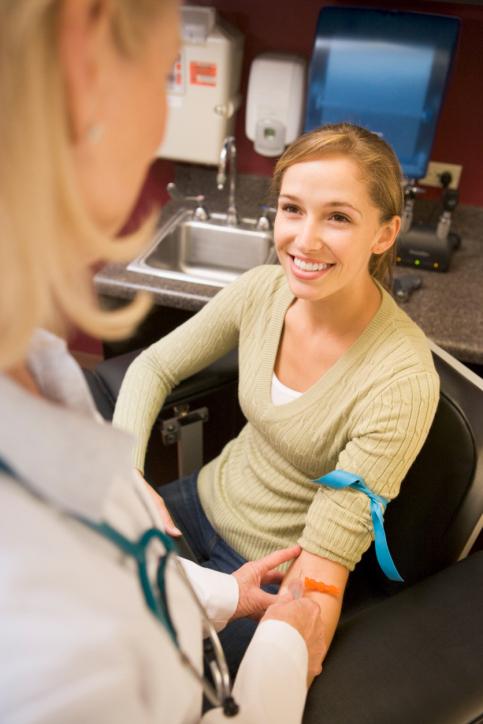
If you have ever wondered "How can I help someone with cancer?", one simple gesture that can make a huge, life-saving difference is to donate blood. I know. I know. For many people giving blood is anything but “simple.” The mere thought is sometimes enough to make you feel faint or queasy. But consider this: Donating blood just one time can save up to three lives, and 25% of all blood donations are used by people with cancer.
Many people receiving cancer treatment rely on donated blood or platelets to be able to continue their care. Most treatment plans that include radiation therapy and/or chemotherapy can seriously decrease the amount of red blood cells, white blood cells, and platelets in a person’s body, and some types of surgery may lead to blood loss. Some cancer survivors may also develop abnormally low levels of red blood cells (known as anemia) or have a low platelet count. All of these conditions may prompt a doctor to recommend a blood or platelet transfusion.
Unfortunately, January is a difficult month for blood centers to get blood donations—fewer people tend to donate during the holidays, the weather and roads are often bad, and more people are sick with things like colds and the flu. This low turnout can put donated blood supplies at critically low levels and put the health of cancer patients and other people in jeopardy.
So whether you are a newbie or a seasoned pro, consider becoming a donor in January as part of National Blood Donor Month. Although all blood types are needed, people with Rh-negative blood types are especially encouraged to donate. This is because Rh-negative blood can be given to people with both “positive” and “negative” blood types. Type O negative blood, the so-called “universal blood donor type,” is especially important because it can be given to anyone who needs blood regardless of their own blood type.
To be eligible to donate blood, you must:
- Be at least 17 years old
- Weigh at least 110 pounds
- Pass a physical and health history examination
There are many places to donate blood, including bloodmobiles, community blood centers, and hospital-based donation centers. To find a location near you, visit http://www.aabb.org/tm/donation/Pages/Blood-Bank-Locator.aspx or http://www.americasblood.org/where-to-donate.aspx.
